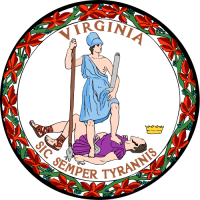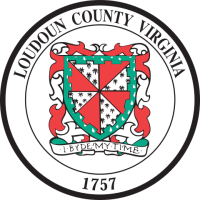
Citizens of Virginia will be voting on one statewide ballot issue in this year’s general election, which would change and add text to the Constitution of the Commonwealth. The state constitution permits the state Senate or the House of Delegates to propose amendments, and, after having been approved by a majority vote in both houses, they are then presented to the people for approval. If a majority of voters vote ‘yes’ in the referendum, the state constitution is amended as specified.
Additionally, citizens of Loudoun County, Virginia, will be voting on three bond referendums in this year’s election. Virginia’s local governments are required to hold a referendum to get the voters’ permission to issue bonds on behalf of the city or county. Bonds are usually used by governments to raise money for large capital expenditures when particular projects cannot be funded through general funds and tax revenues.
Bonds are debt. When they are sold, the issuing government receives an immediate influx of cash from the purchasers. But, like a bank loan, all of that money must be repaid over time (plus interest). As such, bonds should be used sparingly, and only for large, unusual projects where funding them directly from the general fund is not possible.
Virginia Constitutional Amendment
Tax Exemption

The Virginia General Assembly has proposed amending the Constitution of the Commonwealth of Virginia to allow the state legislature to exempt from property taxation the surviving spouses of members of the armed forces who are killed in action. It would only permit the exemption for the primary residence of the spouse, and only as long as they have not remarried. A detailed explanation is available from the Virginia Department of Elections.
Similar amendments have appeared on the Virginia ballot before—three times since I began making formal endorsements here on Off on a Tangent in 2004. In all three cases I endorsed a ‘yes’ vote, and in all three cases voters in the commonwealth agreed.
In 2006, voters permitted (by a 65-35 majority) greater exemption authority to the state and local governments with regard to “conservation, redevelopment, or rehabilitation areas.” In 2011, voters permitted (by 76-24 and 82-16 majorities respectively) increased state and local exemption authority for the benefit of the elderly and disabled, and created a new statewide exemption for military veterans suffering from a permanent, total, service-related disability.
The new exemption being proposed now would build upon the existing exemption for disabled military veterans by allowing the General Assembly to extend it, with similar restrictions, to the surviving spouses of members of the armed forces killed in action. The legislature has already passed a law establishing this exemption, but it cannot take effect until the state constitution is amended to permit it.
As a general rule, I support property tax exemptions for deserving citizens . . . and none are more deserving than the men and women of our armed forces, and the spouses they leave behind when they die in service to their country. As such, it almost goes without saying that I endorse a YES vote on the tax exemption amendment.
However, the fact that we keep having to consider these types of amendments points to a structural problem with the Constitution of the Commonwealth of Virginia. State constitutions should serve to provide a broad statement of governing principles and establish the fundamental structure of the state government. The day-to-day and year-to-year governance should be happening through the normal legislative process within the confines of that system.
Rather than adding a new one-off tax exemption to the state constitution, we should instead modify the constitution to allow the General Assembly to create these kinds of exemptions on their own, subject to the usual checks and balances between the legislative houses, the governor, and the courts. There is no need to continue putting every property tax exemption proposal to a state-wide referendum.
Loudoun County Bond Referendums
A brief explanation of each Loudoun County bond question can be found on the Loudoun County general election web site. The county budget office also provides detailed information about these and other planned capital projects on the Fiscal Year 2015 Budget web site.
Public Safety Projects

The Loudoun County Board of Supervisors has proposed issuing up to $34,690,000 in county bonds to finance the building of a new animal shelter in Leesburg or in the eastern half of the county, the purchase of fire and rescue apparatus, the cost of acquiring land for the Sterling Park Rescue Squad, and the cost of acquiring land for and building a new Sterling volunteer fire station.
As always, the question also includes open-ended permission to use these capital improvement bonds to fund “other public safety facilities throughout the county.”
This follows on the heels of many previous fire and rescue bond referendums . . . three million dollars in 2011, another three million in 2012, and over fourteen million in 2013. Each of those received a ‘yes’ endorsement here on Off on a Tangent, and each was approved by voters in the county.
Loudoun is among the fastest growing counties in the United States, and our public safety officers face many unique challenges. Along our borders are a mountain range, a large river, and a busy international airport. We are urban, suburban, and rural all at the same time. We house everything from national security facilities and multinational corporations to mom-and-pop shops and bucolic wineries. It is no surprise that our police, fire, and animal control agencies need to grow rapidly in proportion to population growth in the county, and that they need to be well-equipped and ready for anything.
For the 2015 fiscal year, the county estimates that we will have a population of almost 370,000, and our fire and rescue department will respond to almost twenty thousand emergencies. The total county budget is about two billion dollars, of which only about 67.6 million goes to the fire and rescue department. Another 3.2 million dollars go to animal services. Combined, they account for less than four percent of all county spending . . . quite a bargain.
It is unclear why this additional thirty-five million dollars cannot be found in the county budget. Perhaps we should consider reducing the 1.2 billion dollars—sixty percent of the county budget—that funds our dysfunctional public schools. But, having said that, it is a reasonable use of capital improvement bonds to build new public safety facilities, especially when the amount would account for about half of the annual budget of the affected agencies. As such, I endorse a YES vote on the Loudoun County public safety bond referendum.
Parks, Recreation, and Library Projects
The Loudoun County Board of Supervisors has proposed issuing up to $10,935,000 in county bonds to finance the cost to relocate and expand the Sterling Library and to renovate the Sterling Community Center. The question also includes open-ended permission to use these capital improvement bonds to fund “other public park, recreational, and library facilities throughout the county.”
The Loudoun County Parks, Recreation, and Community Services department has been budgeted about forty million dollars in the 2015 fiscal year. The Library Services department has been budgeted a bit less than fifteen million dollars.
The total maximum amount that would be raised by this bond referendum could be provided instead by a minuscule 0.5 percent adjustment in the county’s budget. It is unclear why these projects were not important enough to warrant shifting one half of one percent of the county budget from other things for one year. Even if we funded these projects entirely out of the public schools’ general fund disbursement, it would result in a less-than-one-percent reduction in their budget—a budget which has already increased by nine percent over the last year even as enrollment only grows by about three percent.
The county should only use debt as a means of funding capital improvements when a project is too large or complex to be funded directly from taxation and the general fund. If you have the means to buy a house with cash, why on earth would you take out a mortgage? I endorse a NO vote on the Loudoun County parks, recreation, and library projects bond referendum.
School Projects
The Loudoun County Board of Supervisors has proposed issuing up to $162,900,000 in county bonds to finance the costs to design and build a new elementary school in Dulles North, to design and build a new middle school in Dulles North, and the cost to design and build a new Advanced Technology Academy. The question also includes the familiar open-ended permission to use these capital improvement bonds to fund “other public school facilities throughout the county.”
The Loudoun County Public Schools (LCPS) receive a whopping 1.2 billion dollars of the county’s two billion dollar budget. In other words, sixty percent of all county revenue goes directly to our schools. All other county services—police, fire, transportation, mental health services, corrections, courts, elections and voting, family services, libraries, parks, and everything else—receive only tiny fractions of what LCPS gets every single year.
In the 2015 fiscal year, the county has budgeted an increase of over 112 million dollars from the previous year—a nine percent funding increase in a year where enrollment is only expected to increase by about three percent. In addition to this incredible windfall from the county, LCPS also receives millions of dollars from other sources—tuition fees from out-of-area students, property use fees, and funding from the state and federal governments.
According to LCPS, it has a total enrollment of 73,233 for the 2015 fiscal year. They officially estimate a per-pupil cost of $12,195 per year, however this number is misleading as it is calculated using only part of the operating budget. Using the county’s 1.2 billion dollars in disbursements to the schools as a more realistic cost value, then dividing that by the number of students, we get $16,386 per-pupil . . . and that is before counting all of the extra millions the schools are getting from state and federal sources. Researchers estimate that the United States spends an average of $15,171 per-pupil per-year . . . the highest amount of any nation in the world. We also have some of the highest average teacher salaries in the world.
Despite all of this, our schools under-perform our international peers by almost any measure. Meanwhile, LCPS officials claim that our schools are under-funded, even going as far as to make absurd and idiotic claims that a nine percent budget hike is actually a massive cut. Perhaps we should ask our school board to sit-in on some elementary school math classes. Or we can put one of those number lines on the wall of the board chamber, and when these discussions come up we can use a pointer and demonstrate that nine [percent revenue increase] is greater than three [percent increase in enrollment].
Needless to say, our schools do not need any more money. I endorse a NO vote on the Loudoun County school projects referendum.
It is tempting to vote yes—more so than in any past school bond referendum—because some of this funding will be used to build the Advanced Technology Academy, a planned magnet school for advanced students. Today we pay Fairfax County Public Schools for the privilege to send students to the Thomas Jefferson High School for Science and Technology, but as the county grows this arrangement will become less and less practical. We should build the academy . . . but it would be a waste to build a great magnet school in the midst of a bloated and broken school system.
Any funding for the academy, or for any other major school project, should be made contingent upon the implementation of a top-to-bottom school reform and cost control effort.

